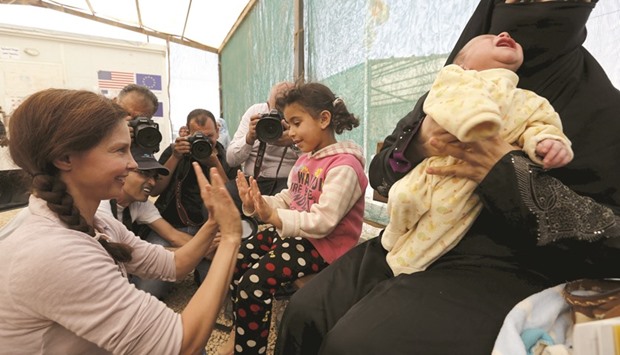Two years ago today, on April 14, 2014, the international community demonstrated its commitment to the advancement of the human rights of children when the Third Optional Protocol to the UN Convention on the Rights of the Child (UNCRC) on a Communications Procedure (OP3CRC) came into force. The OP3CRC allows children from states who have ratified it to bring forward complaints relating to the violation of their rights to the UN Committee of the Rights of the Child directly.
The introduction of the protocol was a crucial addition to the Convention in upholding the rights of children by ensuring their right to survival, protection and education as specified in the UNCRC.
However, in reality, for the millions of children afflicted by war and poverty worldwide, the OP3CRC and other human rights instruments are far out of their reach, and still some time away from translating into a reality on the ground.
While these ambitious treaties are being implemented, children continue to endure the harsh realities of their circumstances, which gravely deprive them of their basic human rights.
While it must be recognised that practical implementation of legislation can be a lengthy process, it is essential to remember the urgency of keeping our promise to this generation of children while they are still young enough to benefit.
In a time of devastating conflict and global uncertainty, it is imperative that the international community adopts a holistic approach to enforcing the human rights of children, taking into consideration the specific needs of children afflicted by war and extreme poverty.
International organisations can play a key role in providing measures which can guarantee the rights of children in a shorter time frame. Innovative solutions, and models tailored to the realities of children based on their geography and the particular hardships they face, are the most effective way of reaching children most in need.
Education is widely recognised as one of the key rights which need to be granted to children, yet there are 59mn out-of-school children worldwide. Education can particularly benefit those in conflict-ridden environments, such as Syria and Yemen, and provide a sense of stability to children who have endured prolonged periods of insecurity, while preparing the next generation of responsible global citizens.
According to a report released by the All in School organisation, part of the UN International Children’s Emergency Fund (Unicef), 40% of Syrian refugee children living in Lebanon are out-of-school. This presents a clear example of the urgency to realise legal instruments such as the UNCRC and its protocols.
We must continue to emphasise the need for improved procedures and at the same time put measures in place to deliver quality informal education for Syrian children and other children deprived of their right to education.
This has been implemented by a project Reach Out To Asia (Rota) launched last year, the “GHATA: Bringing Education to Informal Tented Settlements” initiative in Lebanon. The 24-month initiative was set up to offer support to young Syrian refuges and their families by granting them their basic needs in education, health and nutrition.
Through this project, in collaboration with the American University in Beirut, Rota is sponsoring the development of three schools in the Bekaa governorate - one of the most impoverished parts of the country. Once completed, the schools will provide Syrian refugee children living in the province with access to quality education.
This is but one example of how international organisations can sustainably advance the human rights of children at a time when urgent action is required. Innovative projects such as these are essential to address the protection and education rights of children.
It is our collective global responsibility to ensure the human rights of children are upheld and to prioritise the rights of the most vulnerable children. Only through our united efforts and acknowledgment of the pressing need to address the human rights of children in war-affected countries can we hope to advance humanity.
- Essa al-Mannai is Reach Out To Asia (Rota) executive director.

American actress Ashley Judd, UN Population Fund (UNFPA) Goodwill Ambassador, playing with Syrian children during her visit to Al Zaatari refugee camp in the Jordanian city of Mafraq, near the border with Syria, this week.
